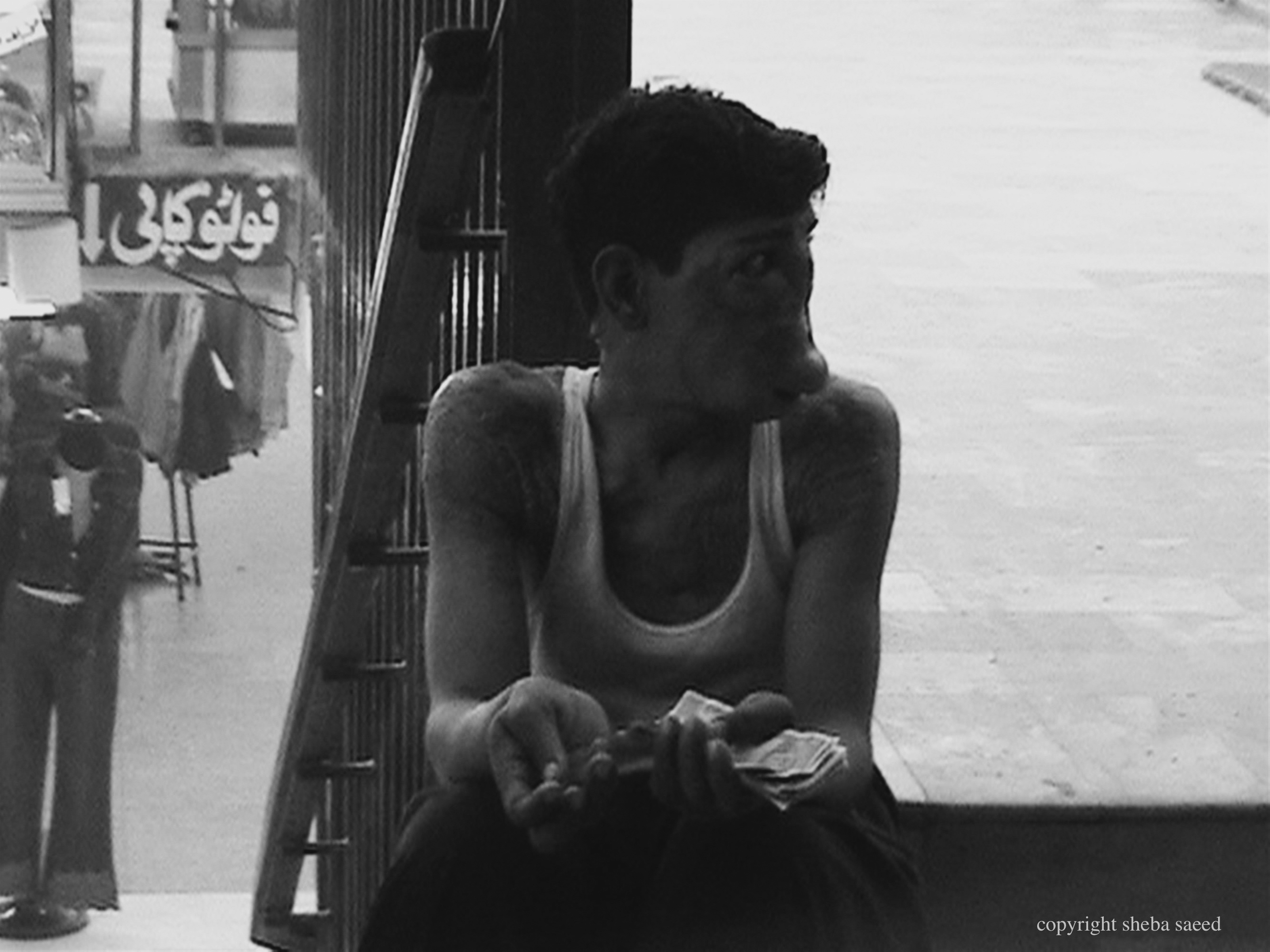Begging in Pakistan is seen as a criminal activity. It is believed that beggars operate as part of begging rings or mafias. The general consensus is that the alms given to the beggar will not benefit the beggar but the mafia that he or she is working for. Some academics think that the beggars see the mafia as their patrons. They live in tents on the peripheries of cities from where they are collected and then dropped off at their particular patch; and collected in the evening when their ‘shift’ is completed. Not surprisingly, people generally ignore beggars and pass them by. This apathy is reinforced by the media and influential opinion makers.
But what would force someone to beg in the first place? Do they have a choice other than to come out on the street with a begging bowl? To explore these questions, I set about researching a 45-minute film, originally for my MPhil. I interviewed a number of beggars in Lahore, a city I know and love as the childhood home of my parents. It became clear that begging was a complex, polysemic and ambivalent issue. Each beggar I encountered had his own story to tell; they came out on the street not out of choice but as a last resort. People experiencing extreme poverty have to make extreme choices or are coerced into making them in the absence of the security of a daily meal and a roof over their head.
While producing the documentary it became apparent to me that representations of poverty must be made in the most responsible way possible. Instead of demonising beggars, we need to assist them, and ensure that they get the help that they need from government and non-government agencies so they are no longer reliant on mafia networks.
Here are five beggars I met. Their stories illustrate the old saying: ‘beggars can’t be choosers’.
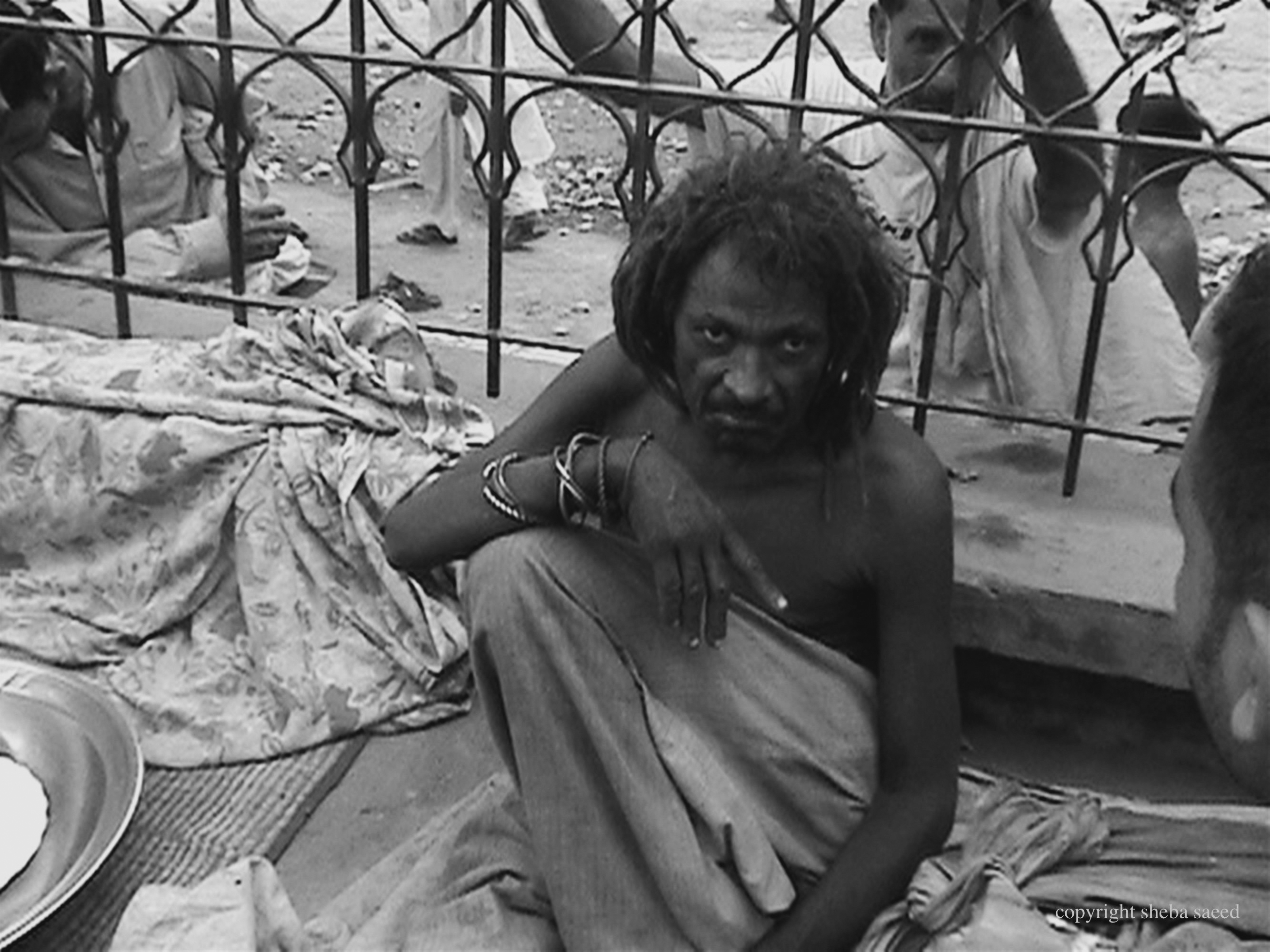
Malang
I met Malang outside the shrine called Pir Sher Shah Wali in Lahore. His distinctive dreadlocks and his attire – he was wearing a shalwar and bangles in a very bohemian fakir manner – caught my eye. When I asked him why he was begging, he replied: ‘Even if we’re begging, it’s not as if we’re stealing or looting’. Malang felt that he was not committing a crime. I asked: is begging not prohibited in Islam? He restated his view that begging was not a crime. Eventually, he told me that it was as a result of his brother being sent to prison which plunged the family into debt. The loss of the family’s breadwinner and the lack of a support network had taken its toll.
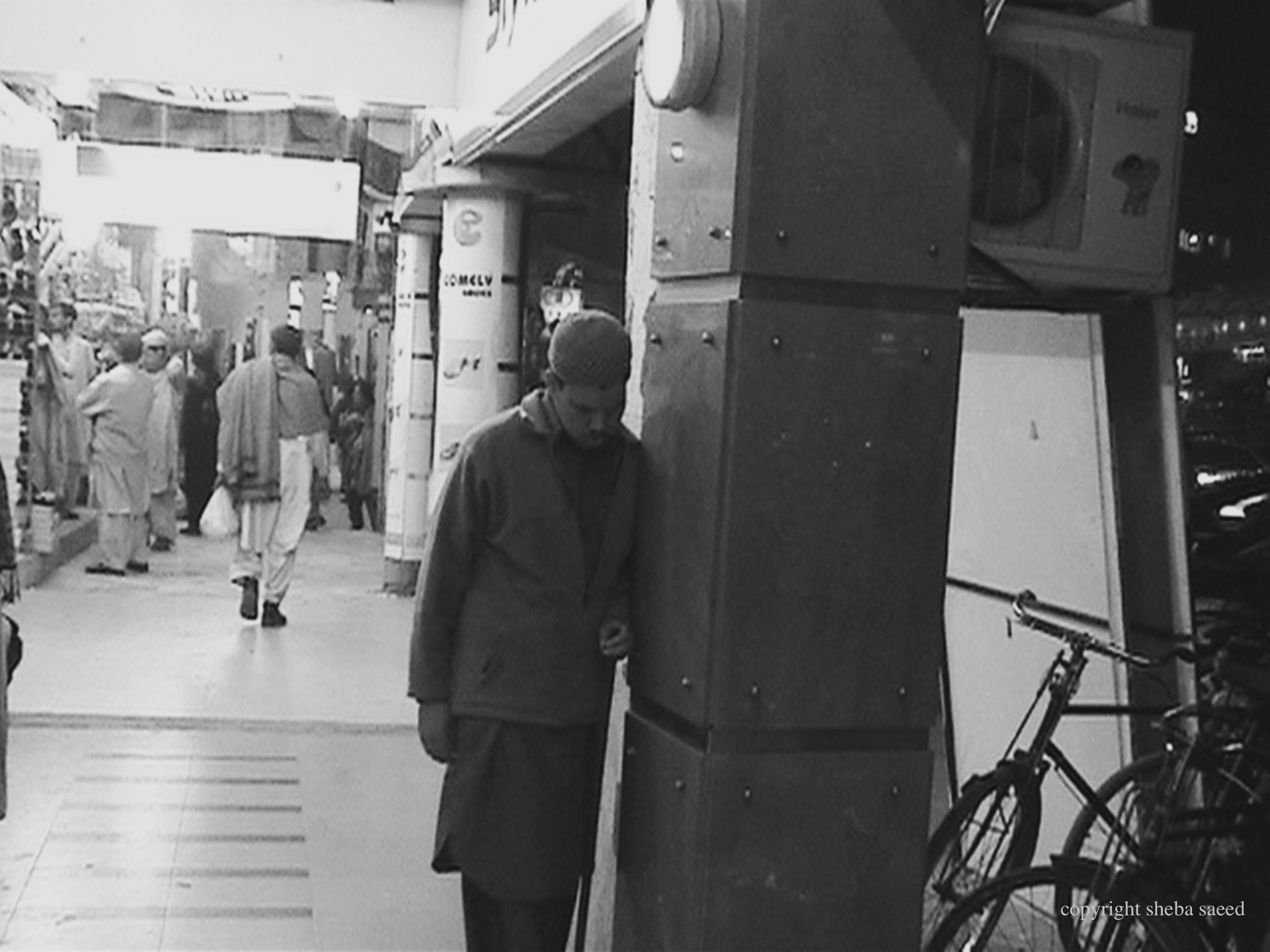
Naath Singer
In a clothes market in Lahore, I saw a blind man singing naaths, religious chants, on a number of occasions. Passers-by would occasionally throw money in his direction. I interviewed him on a day when he was not singing but sitting begging in another part of the same market. He told me that a road accident some years ago had blinded him and left him unable to work. There was no other option, he said. The income he gained through begging was the only way he could survive.
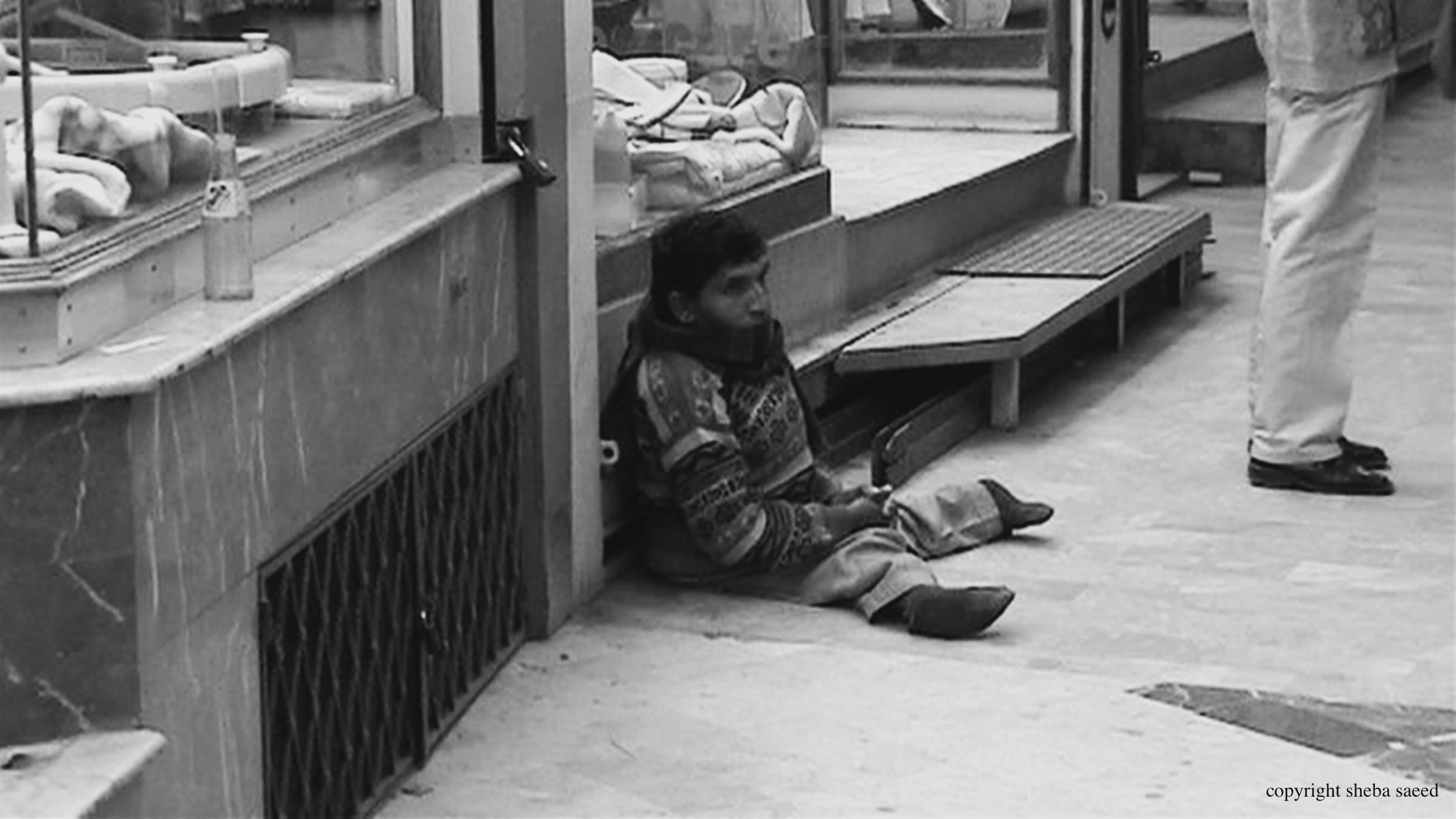
Former Qur’an Teacher
I came across this beggar in shopping centre. He was born with a disability that meant he could not walk independently. He was very articulate, almost poetic in the manner of his speech. He told me, without any sentiments, that he intended to commit suicide. I am like a bird, he said, that would migrate from one place to another. I encouraged him to seek help from government and charity centres. He said he had sought help from every government, from President Zia to President Musharraf without success. He had now lost the will to live.
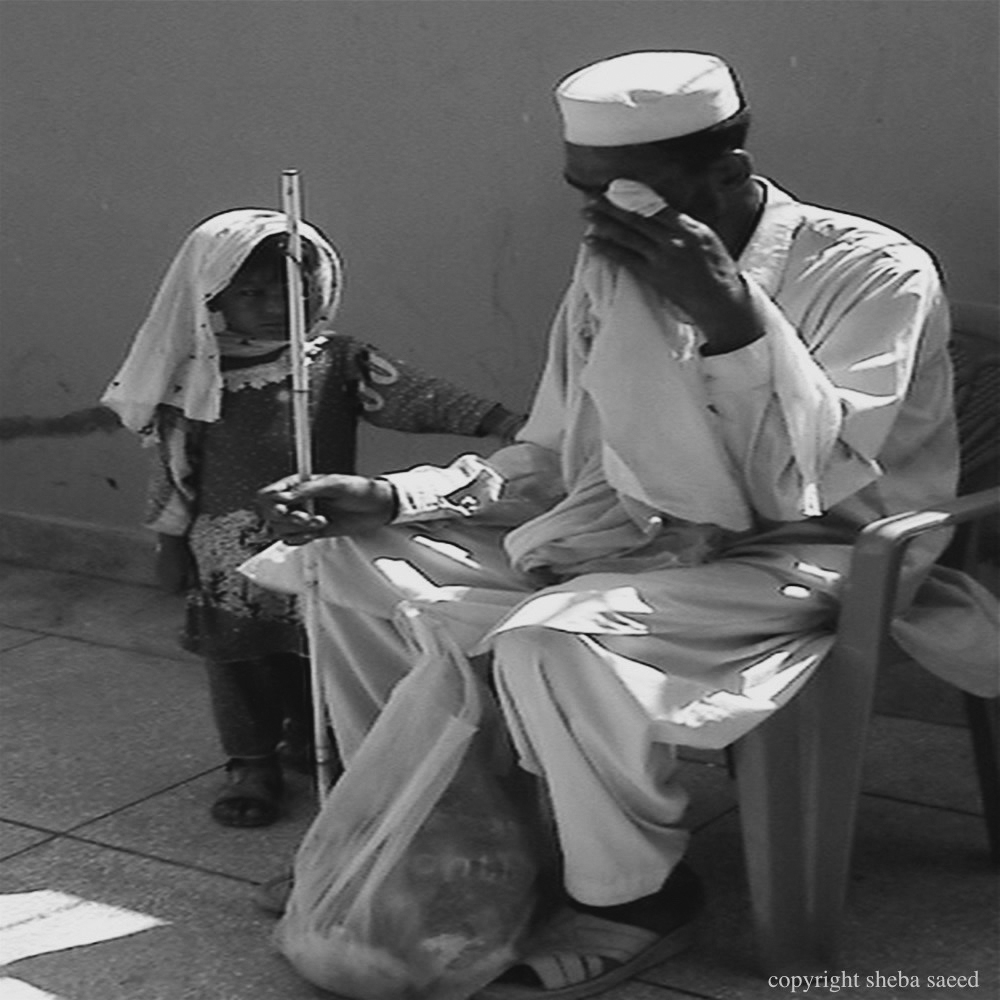
Blind Father
I heard the pleas of a blind man passing the street begging for alms and invited him into my home and asked him to share his story. He was accompanied by his daughter, a girl of no more than four or five years. He said that he began to beg after his brother died leaving him without any support. The only support he now had was his very young daughter who found it difficult to walk in the summer heat.
Boy with disability
I noticed the boy begging in the clothes market. He had a severe facial deformity, which had left him unable to work or study owing to stigma. As a result, he became both: disabled and destitute. He told me he was begging to raise money for an operation on his face.
